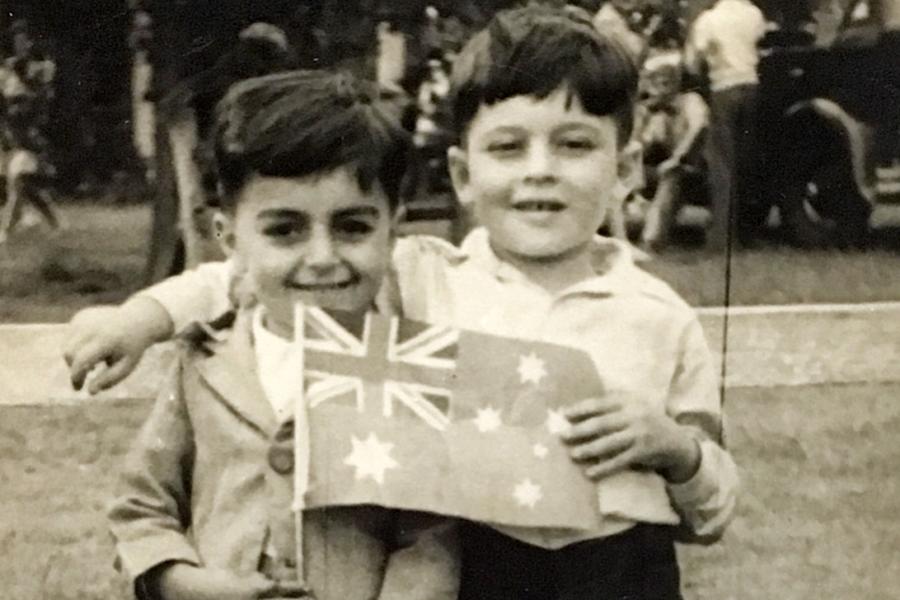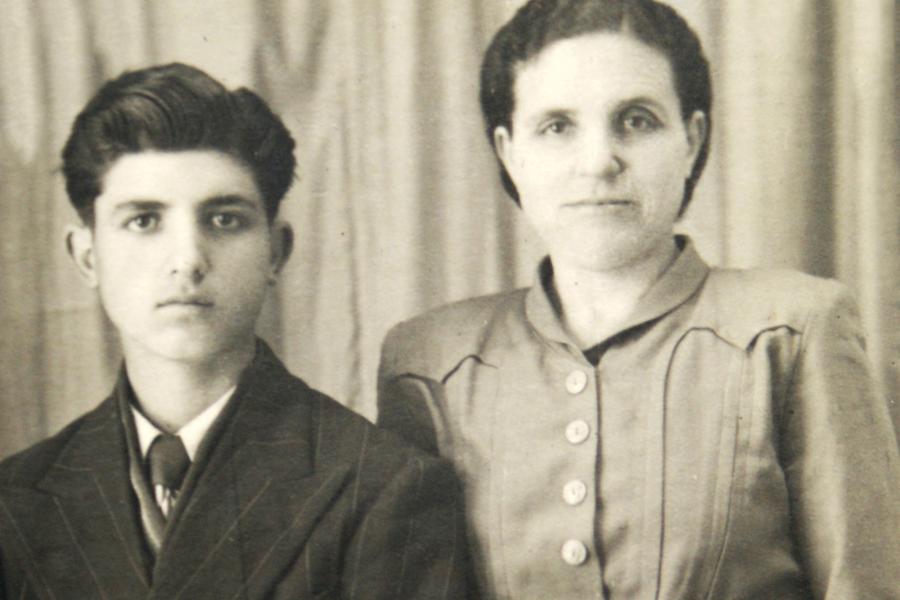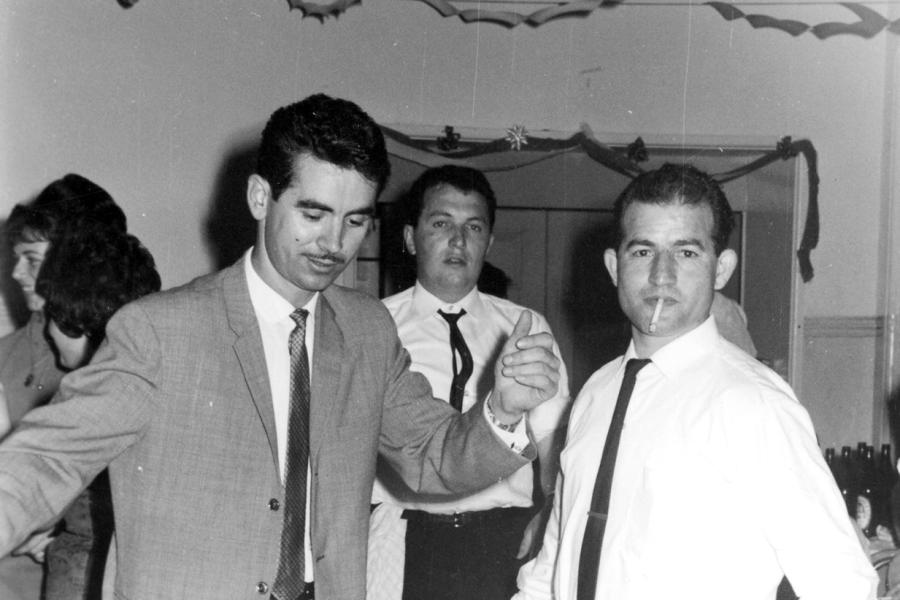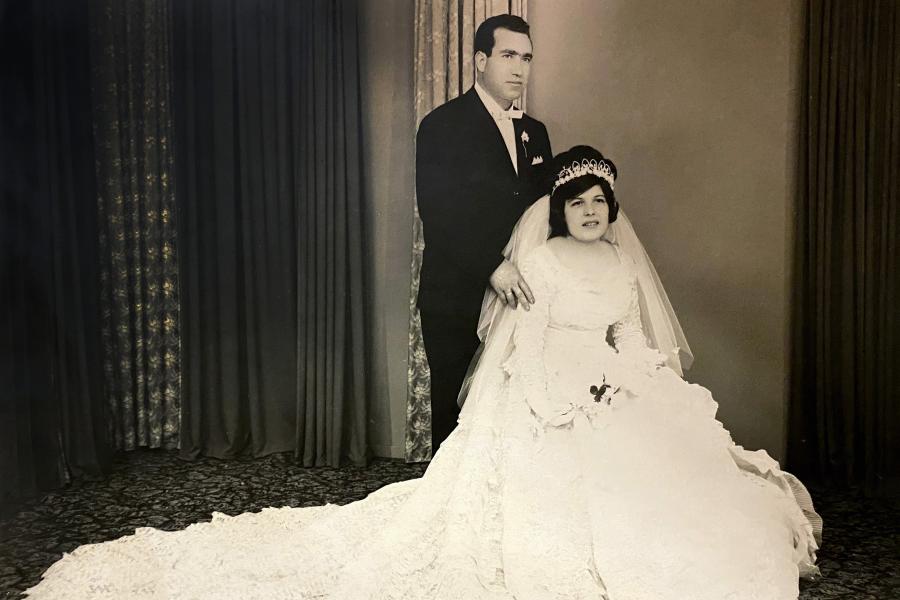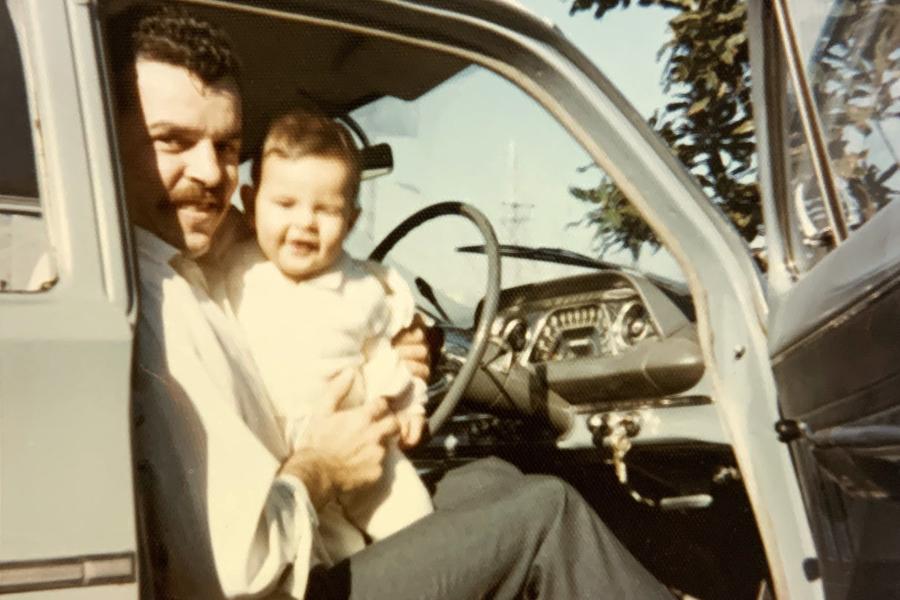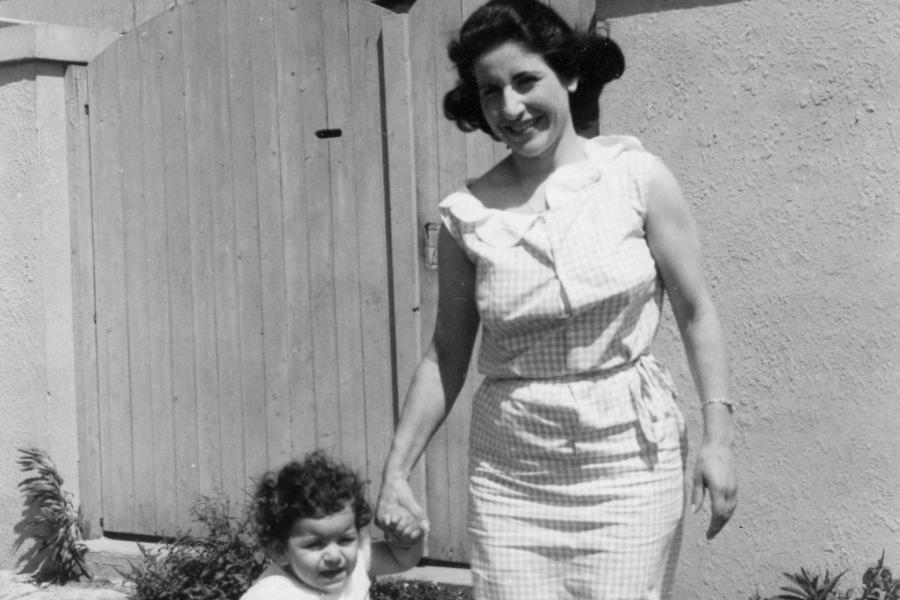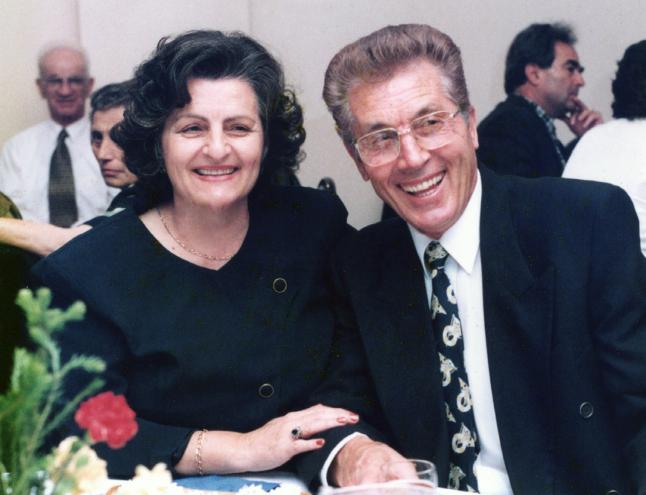

Speaker background
Nikolaos and Lea came from the northern Peloponnese: Lea was born in Planitero and Nikolaos in Valmantoura. Nikolaos came to Australia in his late 20s under the migrant assistant scheme, while Lea was sent by her family to join siblings that had migrated earlier. Nikolaos tried several jobs, including working for the national postal service, where he mastered Sydney’s street map and started his own removalist business. Lea worked as a seamstress and then worked in the removalist business after they met and married in 1968. They started a family in Marrickville and then bought an old soldier settler’s house in Earlwood, which he demolished and built a new house.
Interview summary
Nikolaos and Lea each took turns, recalling their former lives in Greece and the circumstances that led to their emigration to Greece. Each provided very thoughtful and reflective accounts of their working lives and their early impressions of Australia and Australians.
Interview highlights
highlight
[After arriving in Melbourne] we were loaded onto buses and sent to Bonegilla. It was nightfall and it was raining heavily. We were allocated two by two to wooden huts. We were distressed and worried about the unknown. […]. The next day we met some of the girls nearby, who had been in the other Qantas plane […] and who we had met in Athens. They were crying and depressed. One said: “I wish I had listened to my father. He said he would sell a piece of land and pay for my return if I did not like it.” I said “Why do you cry. We don’t know anything about the place yet”.
Timecode 15:51 - 16:55
highlight
Where did you work?
Lea Kanellakis: When I first came I worked near my brother’s house at St Peters, it was a Lebanese [owned] factory where they sewed jackets and pyjamas. I worked there for a year. I then moved in with my sister in Gladesville, and naturally I had to leave that job to find another. I could not be going back and forth to St Peters. So I worked at another factory on Victoria Road where they made children’s clothing, mainly baby clothes. I worked a few months there but because I was underage I was not paid well either at the first or at the second factory. At first I was paid £6 and at the second £7. So then I made an effort to find work near Central, where I found a job and was never asked my age, and there I did piece work. I worked on pants. I made good money [...]. I was making as much as £24 a week! My brother-in-law was working in railways and was earning £18.
Timecode 45:51 - 47:15
highlight
Nikolaos recalls a time when he experienced violence.
Nikolaos Kanellakis: You asked at the beginning about how were were received by the Australian people. And I said that the relationship had its good and bad aspects. I want to tell you about an incident. When I had my own business, I wanted to make some alterations to one of my vehicles. I took it to Newtown where there was someone who dealt with delivery vehicles, and I explained what alterations I wanted done so the vehicle could serve my purposes. So I explained what I wanted and left the vehicle with them. When I returned I found that they had not done what I asked. I said “Excuse me, I can’t take the vehicle like that”. You know what they did? They suddenly rolled down the garage door and I was attacked by four [men] and two women. You know what its like with so many hitting you?
Nick Doumanis: So they became violent.
Nikolaos Kanellakis: You understand. I want to give you some idea what things were like and what we sometimes encountered. They looked at us differently. Because that was a racist incident.
Timecode 01:01:55 - 01:03:40
